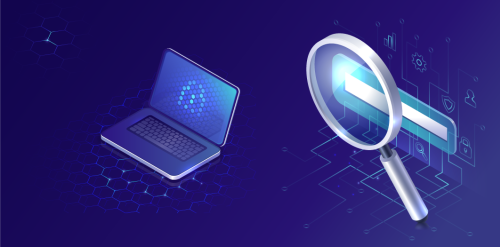
Protect Your Enterprise from Phishing Attacks with Connect-i's Services
A phishing attack is a cybercrime type that targets individuals and organizations via fraudulent emails, messages, or websites to steal sensitive information, such as passwords, credit card numbers, or social security numbers. These attacks can have serious consequences, including financial loss, data breaches, and reputational damage. For example, according to a 2021 study by the Ponemon Institute, phishing costs large companies an average of $14.8 million per year.

In Switzerland, phishing attacks have been on the rise in recent years. According to the 2021 Cyber Security Report published by the Swiss Federal Council, phishing was Switzerland's most commonly reported type of cybercrime, with 7,259 reported cases in 2020. This represents an increase of 39% compared to the previous year. Between January and April 2023, in Switzerland, 21% of all reported cyber attacks were related to phishing.
What Is Phishing?
Phishing is a form of social engineering that deceives individuals into providing sensitive information or downloading malware.
The most common type of phishing attack is email phishing, where attackers send emails that appear to come from a legitimate source, such as a bank or a government agency, often with a link to a fake website that mimics the legitimate one or an attachment that contains malware.

The attack aims to convince the victim to enter their login credentials or other sensitive information on the fake website or to download and install the malware loader. In the first case, once the attackers have the login credentials, they can steal money, data, or intellectual property from the victim's real accounts.

And in the second case, the file from the fake email or website downloads and installs the malware on the victim's computer. The malware then embeds itself within the system, scans the network, and steals, damages, or encrypts the files to demand a ransom to restore access to them.
The Consequences of Phishing for Enterprises
Phishing attacks can lead to severe consequences for enterprises, including financial loss, data breaches, and reputational damage.
With access to an enterprise's network or sensitive information, attackers can commit fraud, launch further attacks, extort money, or sell the information on the dark web.
In addition to these direct outcomes, phishing attacks can erode customer trust and damage an enterprise's reputation. When customers learn that their personal information has been stolen or that the enterprise has been the victim of a cyberattack, they may lose confidence in the enterprise's ability to protect their data.
How to Prevent Phishing Attacks in Your Enterprise
Preventing phishing attacks requires a combination of technology, policies, and education. One effective way to protect your enterprise from phishing attacks is to partner with a trusted cybersecurity provider like Connect-i. Here are some of the services that Connect-i can offer to help prevent phishing attacks:
- Employee training
Connect-i offers comprehensive training programs to help employees recognize and avoid phishing attacks. They include simulated phishing attacks that test employees' awareness and provide immediate feedback. - Website Security
Our website security services comprise regular vulnerability assessments, malware scans, and security updates to protect your website from attacks and data breaches.
In addition to professional services, there are several steps that enterprises can take on their own to prevent phishing attacks. Here are some cybersecurity tips against phishing:
- Be wary of unsolicited emails
Do not click on links or download attachments from emails that you weren't expecting or that appear suspicious. Always verify the sender's email address and check for any spelling mistakes or unusual phrasing. - Check the website URL
Before entering any sensitive information on a website, ensure the URL is legitimate and secure. Look for "https" at the beginning of the URL and a padlock icon in the address bar. - Use two-factor authentication
It provides an extra layer of security by requiring a second form of identification, such as a code sent to your phone or a fingerprint scan, on top of a password so that even if your password is compromised, an attacker would still need the second factor to access your account or device.
By partnering with Connect-i, you can protect your enterprise from the harmful effects of phishing attacks. Our expert team of cybersecurity professionals will work with you to develop a customized solution that meets your unique needs and helps safeguard your business against the latest threats. Contact us today to learn more about our services and how we can help defend your enterprise from phishing attacks.


